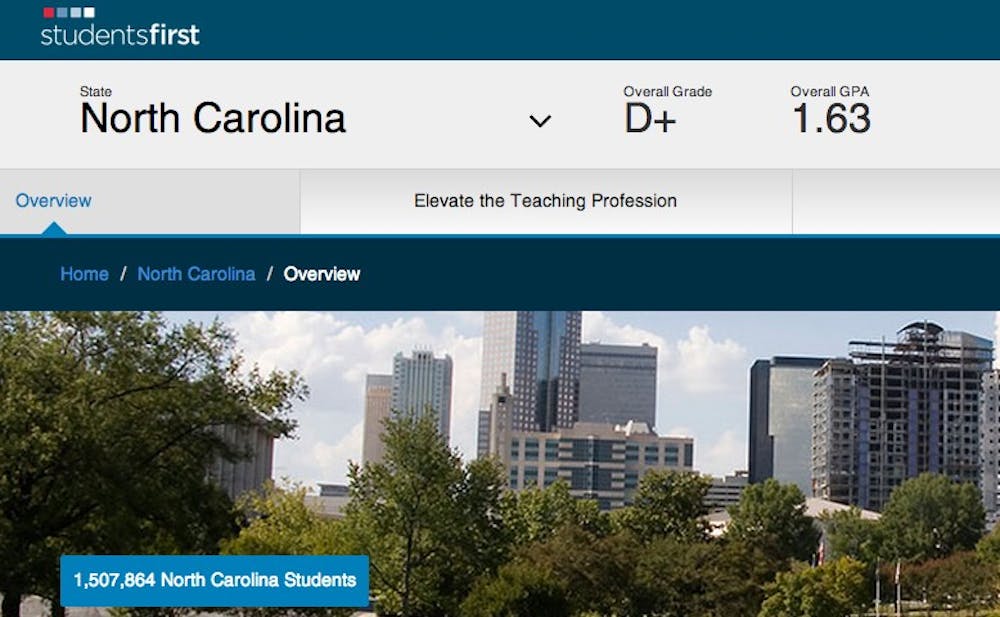Last week, the North Carolina state public school system passed one advocacy group’s test—but just barely.
StudentsFirst, a Sacramento, Calif.-based advocacy group, gave North Carolina a D+ in their annual “report card” study of the nation’s state education systems. The state was not alone in its poor grade, as its education system was ranked No. 15 in the country despite the low marks. The report wasn’t entirely unfavorable as North Carolina was also deemed one of the top five states in terms of educational growth.
Eric Lerum, vice president of national policy for StudentsFirst, said the report took a policy-centered stance on education.
“What we try to do with the report card is to look at the policy environment that would impact the school system and create an environment of freedom and accountability,” he said. “[An “A” system is] one in which there is transparency, accountability and families have quality choices in terms of where they send their children to school.”
Susan Wynn, an associate professor of the practice of education, said that she had some issues with the study’s focus.
“I saw [the report] less as a way to measure how states are doing and more of a reflection of a specific agenda,” she said.
Wynn said she objected to some of the new policies that Lerum outlined as positive developments within the state, particularly recent legislation that eliminated teacher tenure and that implemented voucher programs.
“[The elimination of tenure] was demoralizing to the teachers,” she said. “To take away tenure, which is not a protection for a bad teacher—tenure is simply a right to a due process. That is a way to say ‘we don’t trust.’”
But Lerum said policies such as the elimination of tenure were signs that the state was moving in the right direction.
“North Carolina has moved up,” he said. “They still have a long way to go.”
No states received “A” grades from StudentsFirst. Louisiana and Florida were the top ranked states according to the report, each receiving B minuses.
Lerum said that there were several reasons that no states received A grades.
“Most state systems have looked the same for decades,” he said. “[They are] antiquated and not student centered. We have tremendously great schools in this country and we have abysmal schools in this country.”
Sarah Clark, a public information officer for the North Carolina Department of Public Information, said the state did not have a stance on the study.
Wynn noted that the report was not focused enough on improving the teaching profession nationally, citing high national teacher turnover rates and low wages for teachers in the state.
“Being good at something or knowing a particular area well doesn’t mean you can unpack the content for a learner well,” she said. “The...areas that they focus on reflect policy and not education.”
Lerum said that although teaching is important, it is hard to measure.
“We are just now starting to have conversations in this country of what a good teacher looks like,” he said.
Despite Wynn’s criticisms of the study’s methodology, she said she agreed with the study in one way.
“I would not give [North Carolina] a high rating at this point in time, given this past year’s policy changes,” she said.
Get The Chronicle straight to your inbox
Signup for our weekly newsletter. Cancel at any time.

